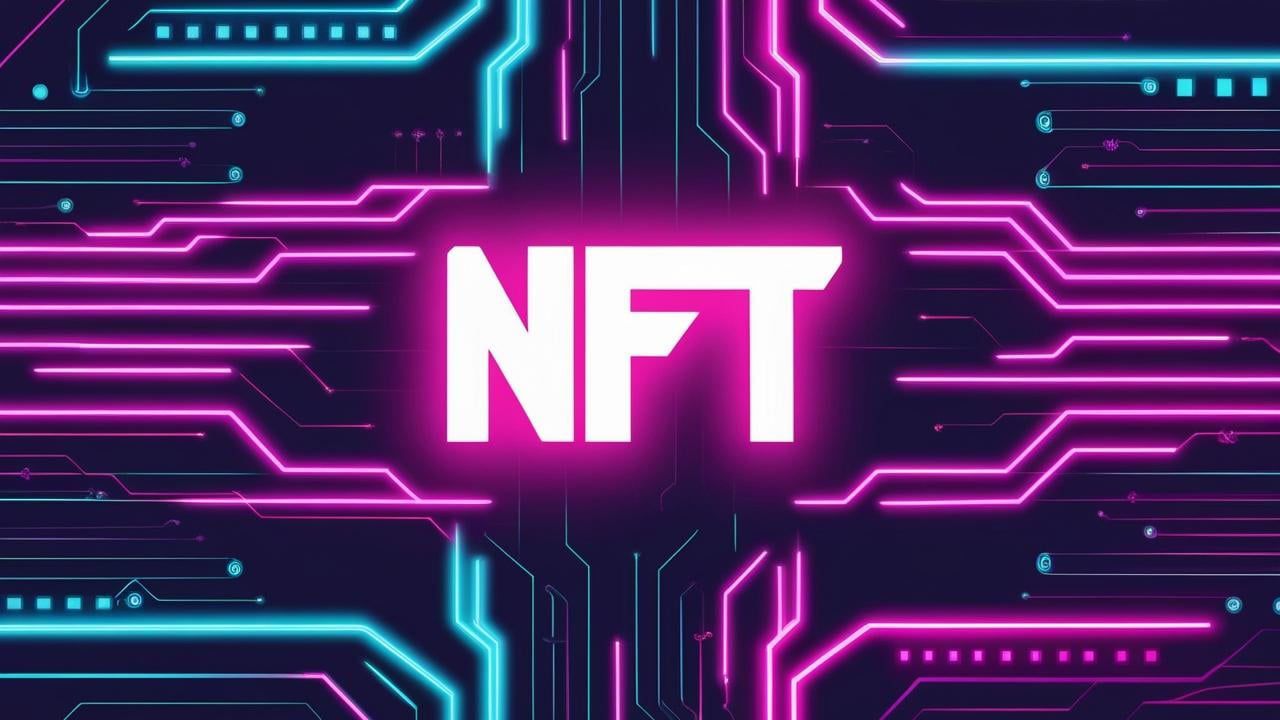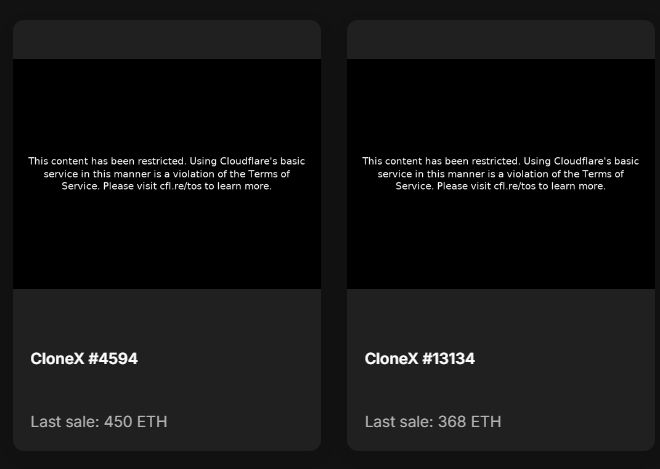
Images for RTFKT’s Clone X and Animus NFT collections, some valued in the millions, vanished this week, replaced by error messages after the project’s Cloudflare account was downgraded to a free plan.
Reported on April 24, the incident exposed vulnerabilities in centralized hosting for non-fungible tokens, alarming collectors and fueling debates over NFT infrastructure.
The outage affected RTFKT’s high-profile collections, with Clone X holding a floor price of 1.25 ETH (approximately $3,000).
Cloudflare, a web service hosting the collections’ off-chain images, restricted access after the downgrade, though the NFTs’ blockchain data remained secure. The incident highlighted reliance on third-party services.
“This is a wake-up call for the industry,” said Sarah Thompson, a blockchain analyst at Crypto Insights. “Collectors assume their assets are safe, but centralized hosting can fail unexpectedly.”
The issue followed Nike’s closure of RTFKT in late 2024, potentially leaving infrastructure unmanaged.
Cloudflare’s free plan, unlike paid tiers costing up to $250 monthly, lacks capacity for high-traffic NFT assets, triggering the outage. Neither Nike nor Cloudflare responded to requests for comment.
RTFKT co-founder Benoit Pagotto, now working independently, announced a shift to Arweave, a decentralized storage platform, to prevent future issues. The transition, costing $2,800 for 200GB, aims to store images on-chain by April’s end.
“Decentralized storage is the future for NFTs,” Pagotto posted on X. “We’re ensuring Clone X and Animus remain accessible permanently.”
Similar incidents have plagued NFTs. In 2022, an $11 million NFT album on Nifty Gateway temporarily disappeared due to hosting failures. Chainalysis reported in 2023 that over 95% of NFT collections lost nearly all value, underscoring market and infrastructure risks.
Collectors voiced frustration on X. User @CryptoCollector
wrote, “Paying thousands for an NFT just to see an error is unacceptable.” Others, like @Web3Fan
, praised the Arweave shift as proactive.
The market saw minimal impact, with Clone X’s floor price dipping to 1.2 ETH. Analysts suggest the incident could spur on-chain storage adoption, though costs may deter smaller projects. Arweave’s permanence is costly, limiting accessibility.
The outage raises challenges for NFTs. Legal disputes over accountability could emerge if collectors seek compensation. Projects may face pressure to disclose hosting risks, with regulators eyeing stricter oversight.
The U.S. Securities and Exchange Commission, yet to comment, flagged digital assets for 2025 review.
RTFKT’s Arweave transition could set a precedent. Observers expect more projects to explore decentralized storage, though financial and technical barriers may slow adoption. The incident may prompt Cloudflare to clarify its Web3 role.
The RTFKT outage reveals a flaw in NFT design: centralized dependencies undermine decentralization. Robust infrastructure is critical for collector trust. Watch for RTFKT’s storage transition and regulatory developments in the coming months.
















 Join our Telegram Channel
Join our Telegram Channel